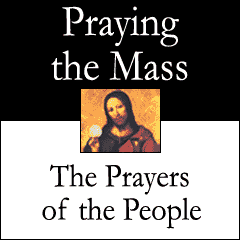It’s an intriguing idea. Recall that Louis Bouyer concluded, in his book “Spirit and forms of Protestantism“, concluded that (as I summarised in an earlier blog):
That the best hope Protestantism has of rediscovering true Christianity is to pay attention to the elements of “revivalism” in its history; and that correspondingly these “revivalist”, “pietistic” and “mystical” elements (which keep cropping up in Protestantism) might also become bridges back to authentic Catholic Christianity.
Now here is a lengthy reflection on the phenomena of Pentecostalism from John L. Allen. Bouyer wrote his book before the Pentecostal “explosion”, but I think what he calls “revivalism” surely finds its clearest expression today in the Pentecostal (and Charismatic) movement. Allen concludes his essay like this (and I quote him in full, because it is all important):
Yet on some key issues that formed the fault lines of the Protestant Reformation, Pentecostals are arguably closer to Catholics than to the Evangelicals. While classical Protestants stress the doctrine of sola scriptura, that the Bible alone is the only guide to faith, Pentecostals believe in on-going revelation through the Spirit [okay, Catholics don’t actually believe this as such, but we do believe in the ongoing deepening of understanding of the once-for all revelation in Christ]. Similarly, classical Protestantism believes in salvation through faith alone, while many strains of Pentecostalism believe in a faith manifested in holy living and the fruits of the spirit – in other words, both faith and works. Pentecostals and Catholics also tend to see grace and nature as complementary, unlike classic Reformation theology which sees a radical discontinuity. Pentecostalism has a sensual, earthy spirituality similar to some forms of popular Catholic devotion.
For these reasons, Harvey Cox has dubbed Pentecostalism “Catholicism without priests,” meaning an expression of folk spirituality without the Roman juridical system or complicated scholastic theology. Despite strong tensions between Pentecostals and Catholics, these structural parallels suggest a basis for long-term dialogue. They also may help explain why so many Catholics in various parts of the world have found Pentecostalism congenial, since it’s not entirely foreign to their own religious instincts.
And there is an intriguing comment submitted by Matthew Del Nevo, who says he is “a Catholic philosopher and theologian who also teaches in the Pentecostal National College here in Sydney” (anybody know him?). He says:
I know both Catholicism and Pentecostalism well from the inside. One important thing Pentes have in common with Catholics is a belief in the real presence of the Holy Spirit. The real presence of the Holy Spirit for both experiential, not just a cerebral belief. An experience of real relation with God. All Protestantism by contrast is based on ‘right belief’. Protestentism is confessionally based. Pentecostalism is experientially based. John Allen’s insights are correct. I have a forthcoming book the thesis of which is that Pentecostalism is as different from Protestantism as Protestantim is from Catholicism. One more note: this is harder to see in the North American context where Evangelical ‘belief-based’ theology dominates Pentecostalism, but the best Pentecostal theologians like Velli-Matti Karkkainen (Fuller) agree with me.
Worthy of some further exploration, I think.







